Rewilding Europe is delighted to announce that the Dunsany Reserve, part of the Dunsany Estate in Ireland, has just joined the European Rewilding Network. As the first Irish member, this takes network membership to 61 across 27 countries. We caught up with Randal Plunkett (officially Lord Dunsany) and an Irish film director and producer, to learn more about the reserve and his reasons for rewilding.
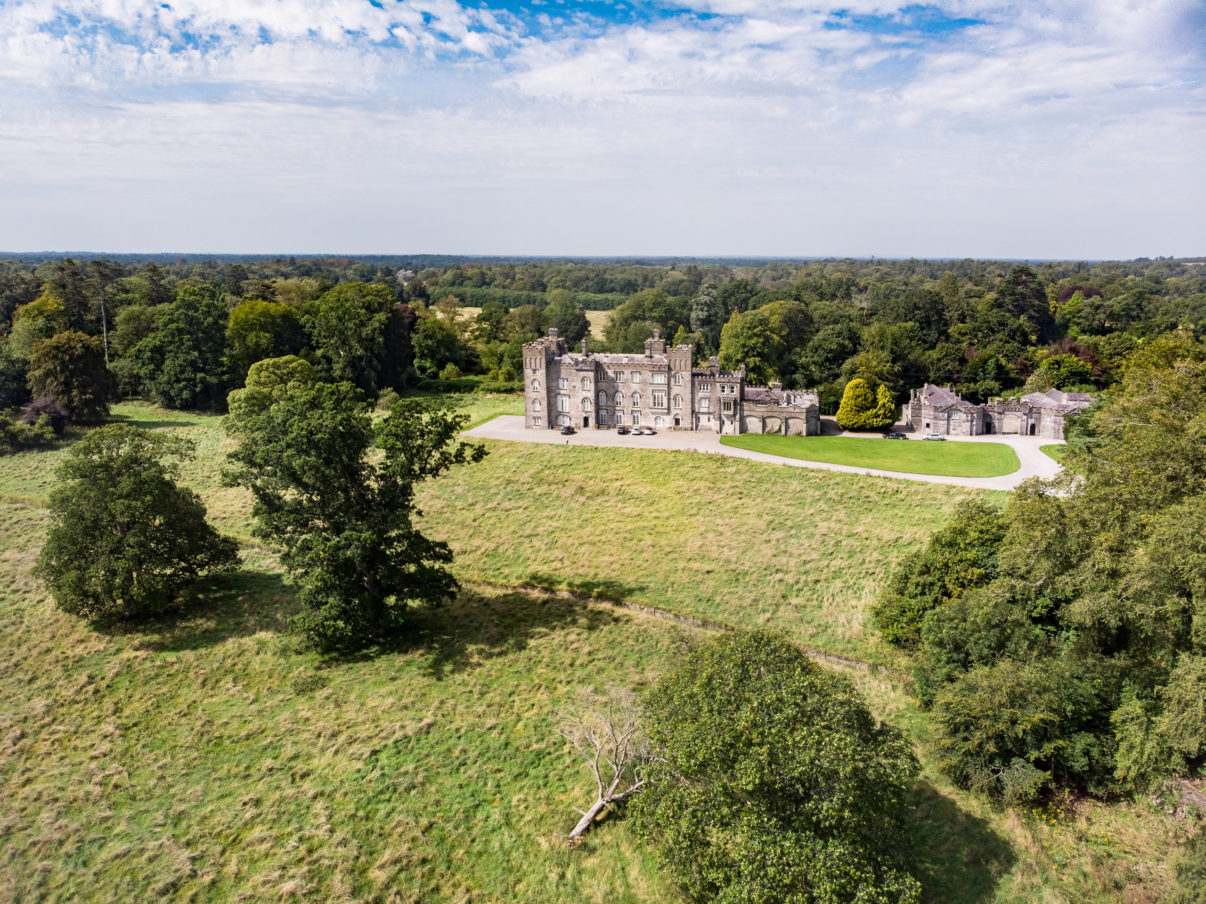
Can you tell us a bit about the Dunsany Estate and Nature Reserve?
The Dunsany Estate, which dates back to the 11th century and is located around 35 kilometres northwest of Dublin, covers 1600 acres (650 hectares) – of this about 750 acres (300 hectares) is now being rewilded as the reserve. There is also around 550 acres (220 hectares) of forest, and there are several springs and streams flowing through marshy areas. The land not forested or being rewilded is used to grow crops. The soil here is very fertile, so the income from agriculture is enough to support the estate, along with the income from the film production facilities based here. There’s a lot of wildlife, from foxes, badgers and otters to owls, red deer and various birds of prey.
Why did you chose to create the reserve and start rewilding it?
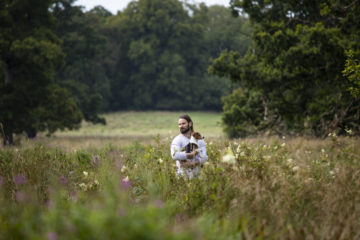
I inherited the Dunsany Estate in 2011 when the land supported a mixture of crop growing and cattle. I didn’t have any experience of farming – I was a filmmaker. At first, I collaborated with a neighbour with the idea of creating an organic farm, but after witnessing the destructive impact of modern farming and the mistreatment of animals, I decided to create the reserve in an attempt to balance out the intensive agriculture that typifies this area. In 2014, all animal agriculture was abandoned and all fields and forests that once contained farm animals were left to rewild, although I didn’t know it was called rewilding at the time.
Can you tell us more about how you’re rewilding the reserve? Is there a vision?
The reserve is pretty much left untouched, with natural processes left to reshape the landscape. There’s no drainage, and areas of grassland are left to be grazed by wild animals, such as deer. At Dunsany we never mass cut anything, but will sometimes trim some of the weaker trees in new plantations to allow room for some of the stronger ones to grow better. Every time a company uses our film production facilities the contract stipulates that they donate a tree to the reserve, and I’m planning to plant five new areas of native forestry over the next five years.
The vision is wilderness! A mix of habitats with flourishing wild nature. I want the reserve to be a true oasis for wildlife in Ireland and to contribute to the maintenance of the country’s natural heritage.
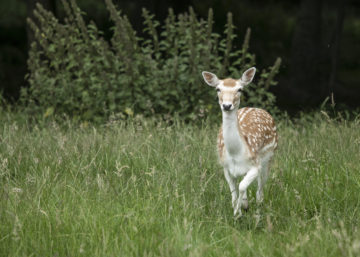
Are you seeing evidence that the reserve is getting wilder?
Absolutely! We have greatly reduced illegal poaching, which means Dunsany has become a safe haven for a wide range of species, many of which are in decline across Ireland. Otters have returned – the first time the species has been seen on the estate in my lifetime. We have pine martens, stoats, hedgehogs, foxes, badgers and barn owls. Red kite and snipe have returned. We have seen a big increase in insects – with a massive surge in butterflies – and we now see many different bat species. Even endangered Irish species such as corncrakes have come back. Nature really is flourishing.
Why did you apply to join the European Rewilding Network?
There’s a famous quotation I came across recently that runs roughly along the lines of: “a single twig can easily break, but a bundle of twigs is virtually unbreakable”. I think the network can make European rewilding stronger as a whole, while also helping individual initiatives such as mine to thrive. I feel privileged to be able to join a movement of like-minded individuals who are committed to restoring Europe’s natural heritage.
The ERN brings together a wide range of people, many of whom are far more expert and established in terms of rewilding than myself. I’m looking forward to finding friends, to healthy debate, and to exchanging ideas and information. There are ERN members rewilding land that is similar to mine – especially in Belgium and the Netherlands – and I hope to learn from them especially.
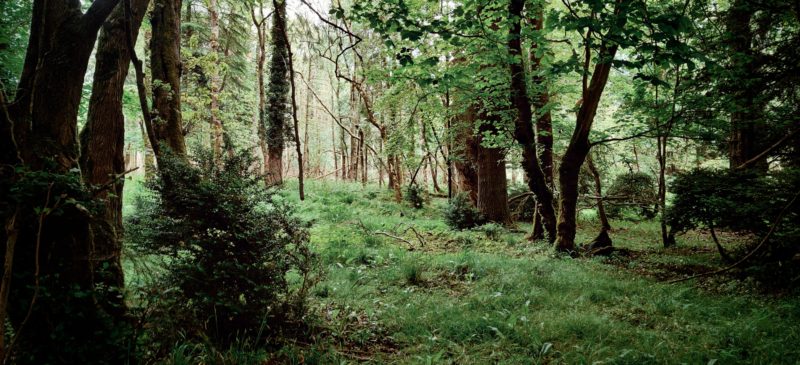
Do you have any rewilding-related plans for the future that you can tell us about?
Apart from continuing to let nature and natural processes take over, I would really like to keep building the reputation of Dunsany Nature Reserve. At one point I wanted to keep the whole reserve secret, but I had an epiphany about two years go. I realised I needed to show that rewilding can work – not only ecologically, but economically too.
I am concerned about the way that the world is going, especially in terms of biodiversity decline and global warming. To effect change, I need to show, by example, that rewilding can make a difference. Surrounded by cities and intensive agriculture, many people have lost sight of what wild nature really is. To appreciate the benefits of such nature, they need to see healthy, complex ecosystems, not just a handful of bumblebees here and there.
There is a very agricultural mindset in Ireland, which is resistant to change. The greening of agriculture is slowly taking place, but rewilding is still generally seen as a waste of good land. I hope the rewilding of Dunsay Nature Reserve can make a meaningful contribution towards changing that mindset.
Have you always been interested in nature? What does it give you personally?
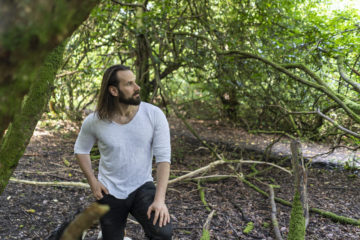
No, definitely not. I was a steak-eating, rock concert-going city slicker. I wanted smog and concrete, not the countryside. But slowly but surely, as I got older, nature began to resonate with me. The more time I spent in nature, the more my insecurities disappeared.
Wild nature gives you something you didn’t expect that you needed. Before I was interested in possessions, status and money. That was all that motivated me. Now, even if I achieve nothing else in my life, I will consider it a success. Thanks to nature, my whole value structure has changed, and I’m thinking beyond me. I sound a bit like a hippy, and my former self would be mortified, but there you go. I am a bit of a radical.
Have you learned anything on a personal level from rewilding the reserve?
I would say patience and tolerance. At the beginning of the rewilding process, it was hard to let go, and I was still trying to control the wild. I remember walking around the reserve for weeks on end, pulling out weeds such as ragwort, which seemed to be taking over. Eventually, I learned to let nature take its course and find a balance – and it did. The ragwort eventually became less rampant.
My family motto is “festina Lente” (literally “make haste slowly”), which sums things up quite nicely. Rewilding is a journey, a long-term process. I realise now that I might not even witness some of the ecological benefits of rewilding the Dunsany Estate. Future generations will enjoy them. And that’s fine by me.
A rapidly growing network
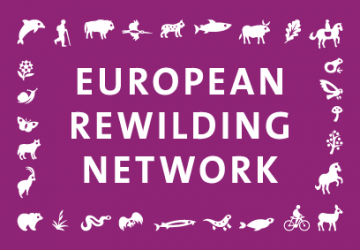 Founded by Rewilding Europe in 2013, the aim of the European Rewilding Network is to enhance the efforts of each member by facilitating the exchange of skills, insight and experience. Members meet regularly, usually via webinar, while nature-based businesses can also apply to Rewilding Europe Capital, Rewilding Europe’s enterprise loan facility.
Founded by Rewilding Europe in 2013, the aim of the European Rewilding Network is to enhance the efforts of each member by facilitating the exchange of skills, insight and experience. Members meet regularly, usually via webinar, while nature-based businesses can also apply to Rewilding Europe Capital, Rewilding Europe’s enterprise loan facility.
The criteria for ERN membership were revised at the end of 2019, with the network shifting its focus from expansion to support for practical, result-oriented rewilding. Rewilding Europe extends a warm welcome to all European rewilding initiatives and encourages them to apply for ERN membership.
